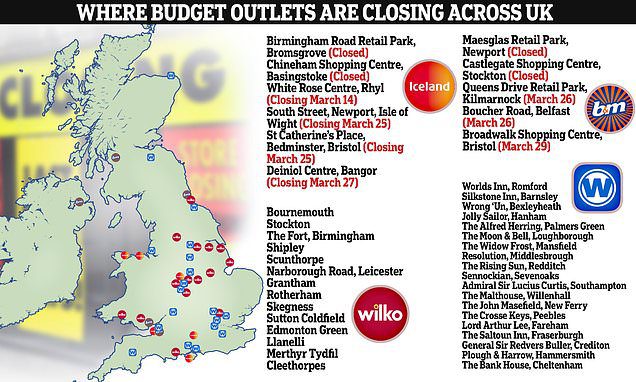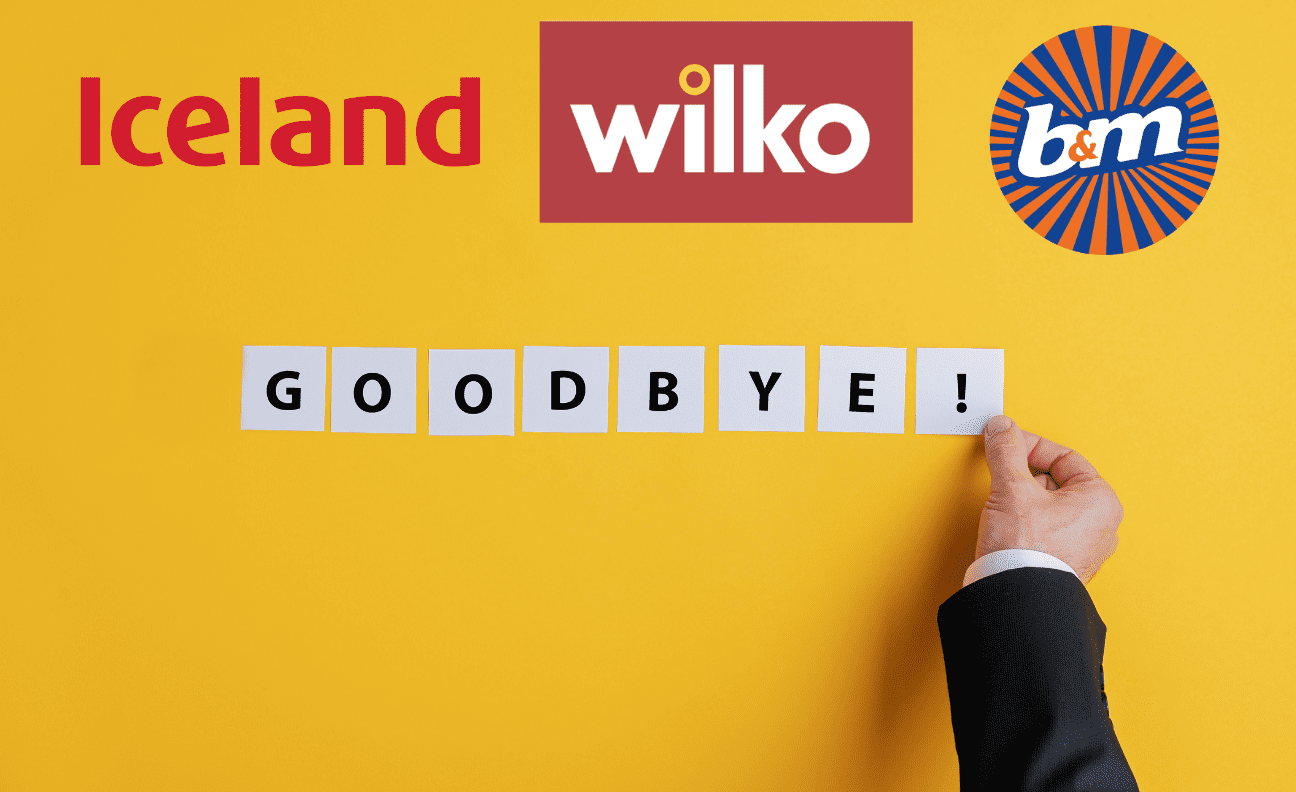Retail giants B&M, Iceland and Wilko have been forced to shutter stores across the United Kingdom due to sky-high leases and redevelopment projects that are impacting their locations. Experts predict that the days of leisurely bargain-hunting are now long gone.
The future of the high street is set to undergo a drastic transformation as Wetherspoon, one of the largest pub chains in Britain, announces it will also be closing several sites in early 2023. But how will this affect shoppers and our economy? Let’s investigate further.
What Stores are Closing and Why?
Until 2019, B&M dominated the UK’s retail market with record growth, but its sales have plummeted due to the effects of the pandemic and the skyrocketing cost of living costs. Despite the investment in digital sales, six stores will be closed; with one of them being situated in Birmingham as part of redevelopment efforts.
The retail giant Wilkinson, otherwise known as Wilko, announced recently that it would be shutting down 15 shops due to its costly long-term leases. Locations in London, Bristol and Belfast are among the most importantly affected cities. With the closure of 30 locations, Iceland is also downsizing, though all hope is not lost as they are opening new stores in other areas to make up for it.
Just days after Lloyds Pharmacy declared that all 1,300 of its branches were facing the possibility of closing due to difficult market conditions, this news has now been released. By the end of this year, Sainsbury’s supermarkets will have shut down 237 of its chemists, which follows last year’s additional closures of a further 76 stores.
This year, Halifax and Lloyds have each closed 40 high-street bank branches due to the significant decrease in customer traffic.

What Are Some Opinions on These Changes?
In light of the post-pandemic’s economic troubles and rising cost of living, these closures come as yet another difficulty. As suggested by experts, the surge in online shopping and an alteration of consumer demands could be adding to this trend.
This has been made notably visible at supermarkets, where bigger names are now compelled to lower their margins in order to compete with ultra-low prices.
So, it appears as if the culture of bargain-shopping for leisure has ended, or is at least on hiatus. People are still searching for discounted necessities, such as food staples, but they’re no longer being deliberately drawn to other discount retailers the way they used to be.
In the past, people would charge to popular discount stores such as B&M, Iceland, and Wilko for unbeatable deals; however, with recent economic changes forcing individuals to be increasingly aware of their spending habits and financial status, shopping for pleasure has taken a backseat.
Budget high street chains B&M, Iceland and Wilko are closing dozens of stores this month as experts say the era of bargain-hunting for fun is over. https://t.co/jmmYpcNfub
— LBC (@LBC) March 12, 2023
Could There Be Any Potential Positives to These Closures?
The closure of high street businesses may initially seem like a disappointment, but it could also potentially create new doors for other enterprising companies to thrive. As rents and prices for retail units in high-traffic locations become more affordable, it opens the door to smaller businesses or independent entrepreneurs.
Furthermore, increased attention to high-calibre products and responsible sourcing methods could gain from the transition in customer practices; shopping domestically and backing small companies may become more essential than ever as our economy recovers.
What Must Companies Do To Survive?
It is unclear what the future of shopping in-person holds, but one thing stands tall – companies must switch up their approach if they wish to remain afloat! Online shopping is a booming trend that doesn’t show any sign of slowing, and retailers who can provide an effortless buying experience across multiple platforms may be able to gain the upper hand.
Moreover, businesses should be centering their strategies around customers and tailoring solutions to their ever-shifting demands and desires. In a bargain-seeking landscape, retailers who provide value, comfort, and excellence will continue to excel.
Conclusion
As customers become more cost-savvy and invest less in shopping for pleasure, the closure of stores by high street budget chains could be a signal of shifting consumer behaviour. The current climate may prove difficult for retailers, but this period of respite could be a chance to explore fresh possibilities and promote sustainable practices.
To survive in the ever-transforming retail world, businesses must be able to provide customers with value, convenience, and quality. Those who succeed in doing so will undoubtedly remain as prominent players on the high street.
Although the future may appear uncertain, change can bring a revitalization and fresh innovation to our local shopping centres.









